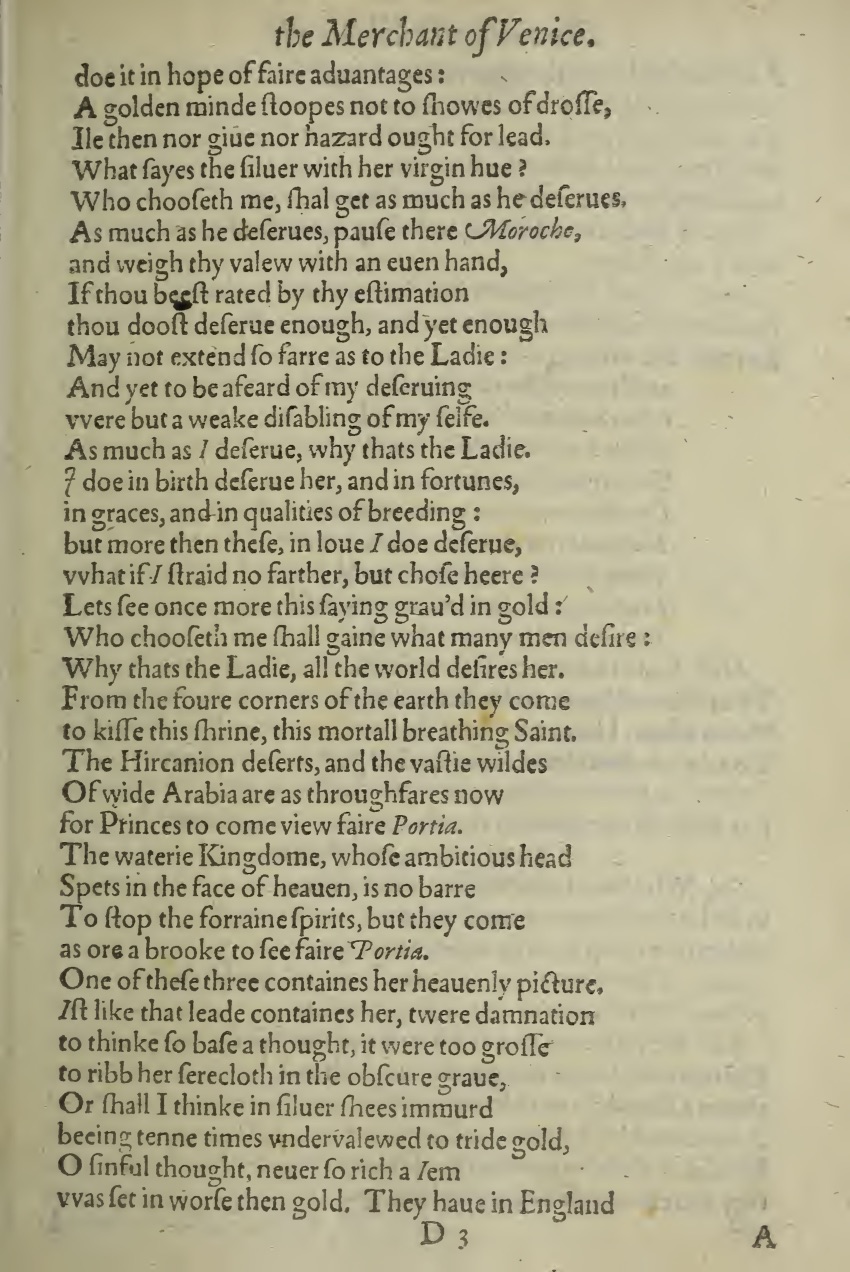Our goal in this edition is to make the text more accessible to a wider audience by modernizing the language in accordance with the Norton Shakespeare edition through the inclusion of contemporary spelling and letters. We also added line breaks and separated paragraphs to divide the speech to correspond with the three caskets referenced, as well as embodied the nature of the speech through natural pauses.
We paid particular attention to emphasizing the themes in the language Morocco uses in this speech through the use of color and bolding and italics. We used shades of green, gold, and silver/gray to explore transactional language and capitalistic ideals. Morocco uses these words when talking about the caskets themselves, but also when contemplating the value of himself in regard to what he can gain from this gamble. We bolded the word "deserve" to highlight Morocco's perception of himself and what he believes he is worthy of gaining, merely illustrating his sense of ego. This is reflected in the third paragraph; we increased the text size to illustrate how Morocco centers himself in what he deserves (as shown through the repetition of "I do... deserve").
We also used pink text to highlight themes of gender and objectification. Morocco often objectifies Portia, and would frequently refer to her based on her physical appearance and lust. He makes his decision of what casket to choose based on what he perceives her value as and what he thinks others would perceive her value as. He doesn't take into account her own humanity in his thought process.
Because Shakespeare's work is meant to be performed, we hyperlinked a clip from Michael Radford's contemporary version of Merchant In Venice (2004), which illustrates Morroco's persona, humor, body language, and relationship with Porsha.
In these efforts, we tried to make this text more accessible, in addition to illustrating themes of value, transactions, ego, objectification, and gender.
Key:
Pink: objectification and gender
Gold: gold casket
Silver: silver casket
Gray: lead casket
Green: value and transaction
Olive Green: trash and less valuable
